Abstract
Iodine-deficiency disorders have been a serious public health problem in Brazil because of the failure of a salt iodination programme established in 1953. The reasons for this failure were logistical, e.g., potassium iodide was not supplied to all salt-producers, iodination of salt was largely erratic, and part of the population at risk used only non-refined salt, which was not iodinated. In 1978 a task force was therefore formed to implement measures to eliminate iodine-deficiency disorders from the country. For this purpose, potassium iodate was distributed, free-of-charge, to all salt mills and an iodate dosing spray was supplied without cost to small salt producers. Also, regional laboratories for determining iodine in salt were set up, inspectors made regular visits to the salt mills, and samples of salt from commerce and from the producers were analysed. More than 90% of the samples contained 10-30 mg iodine per kg. In three typical areas of the country with endemic goitre the urinary excretion of iodine increased from an average of less than 40 μg iodine to 125 ± 38 μg iodine per g creatinine. In conclusion, the salt iodination programme was a complete success and could serve as a model for other countries with a high prevalence of iodine-deficiency disorders.
Full text
PDF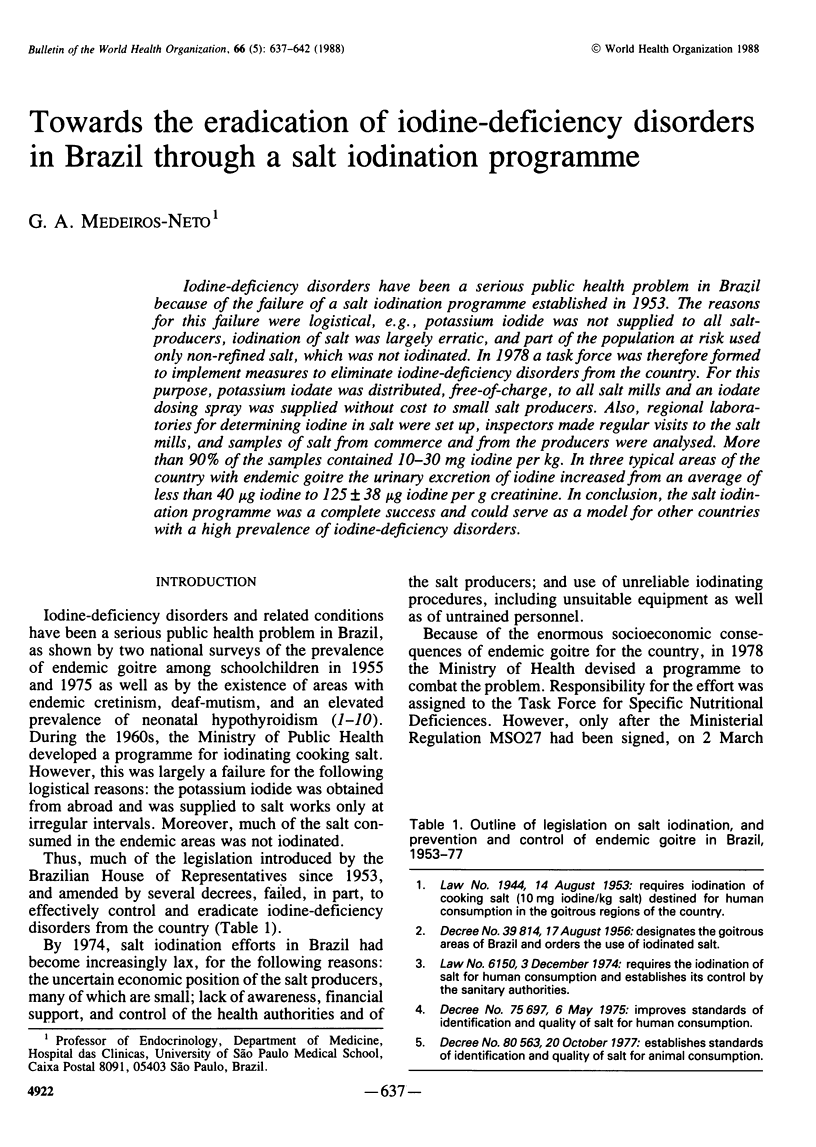
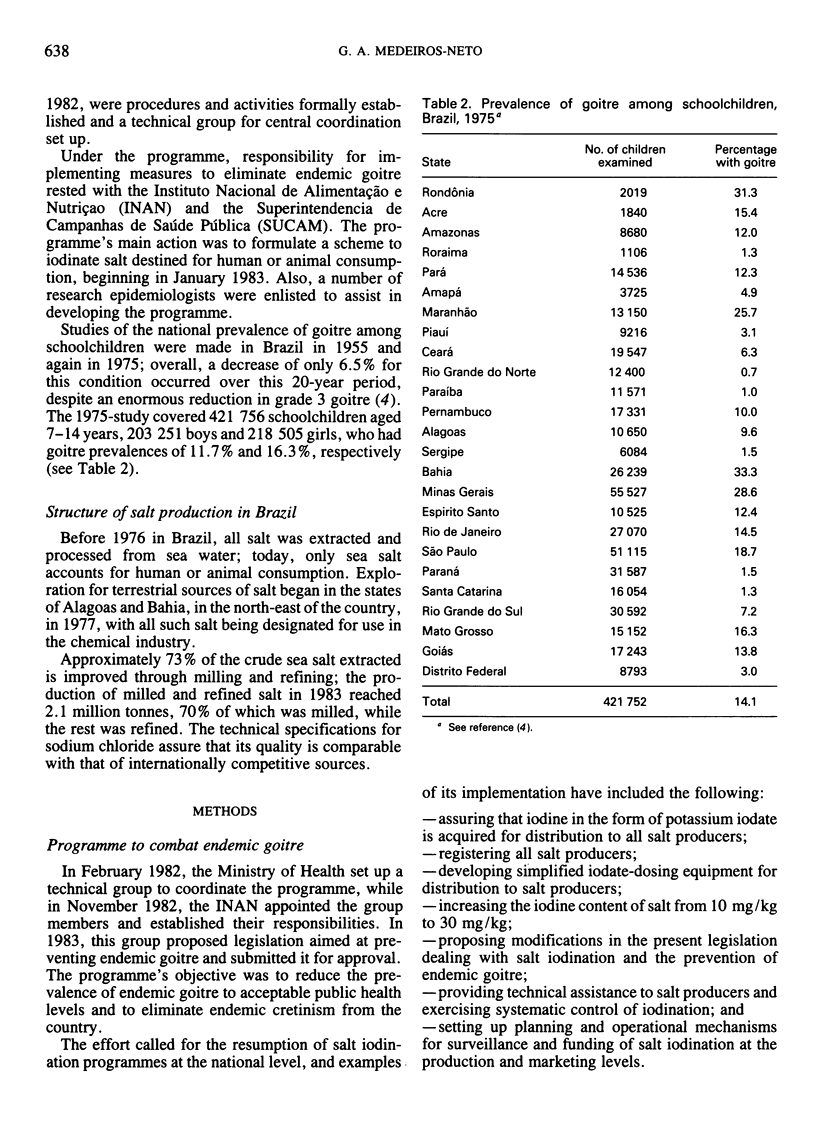
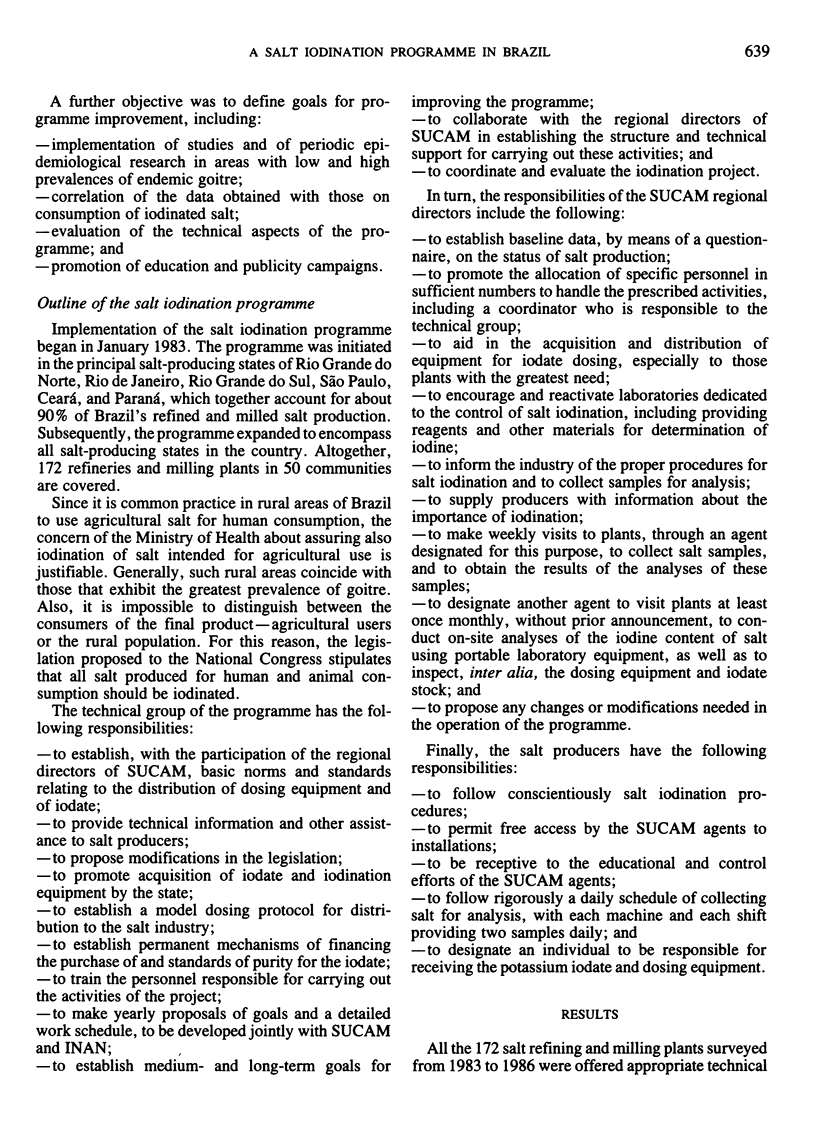
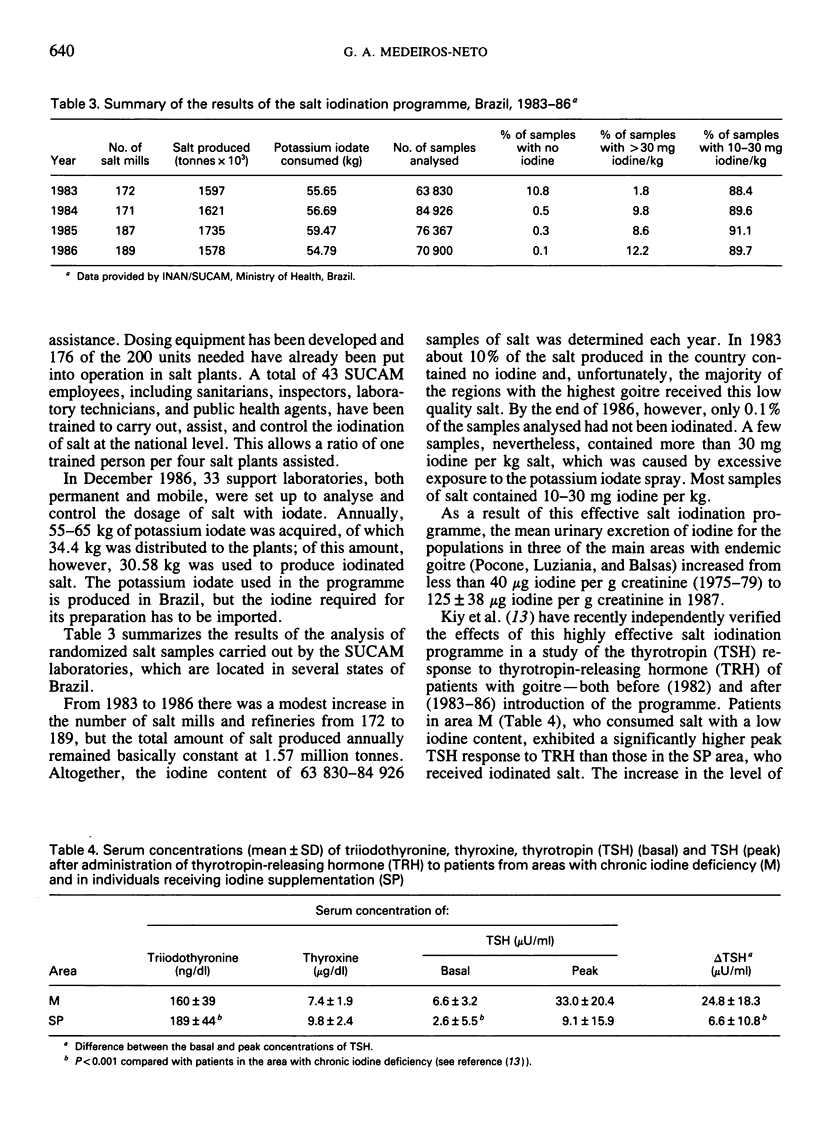
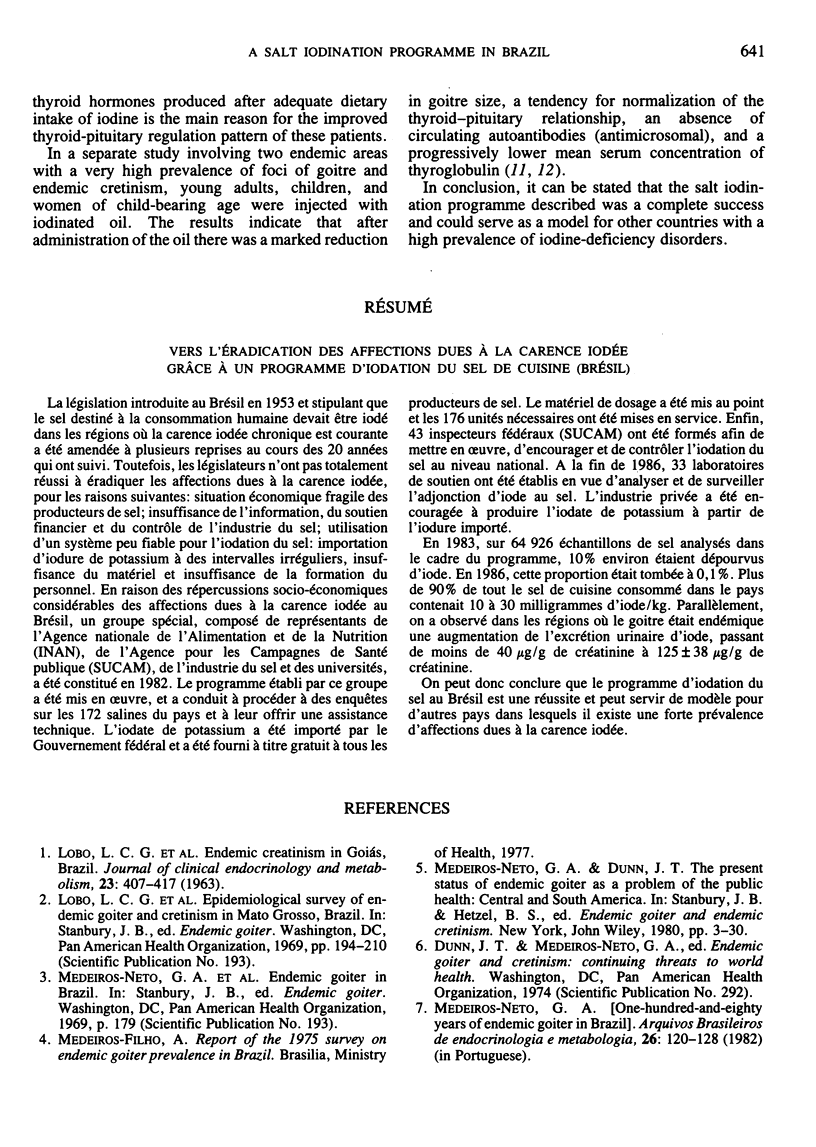
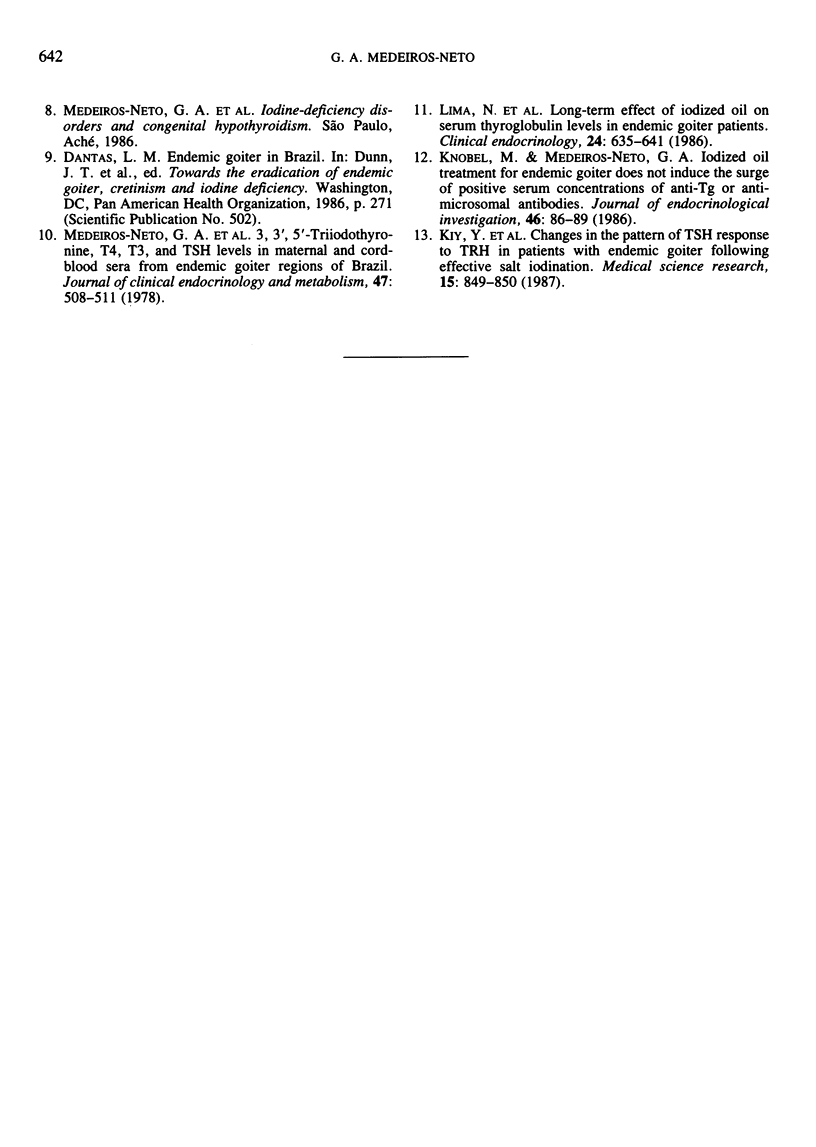
Selected References
These references are in PubMed. This may not be the complete list of references from this article.
- Lima N., Knobel M., Medeiros-Neto G. Long-term effect of iodized oil on serum thyroglobulin levels in endemic goitre patients. Clin Endocrinol (Oxf) 1986 Jun;24(6):635–641. doi: 10.1111/j.1365-2265.1986.tb01659.x. [DOI] [PubMed] [Google Scholar]


